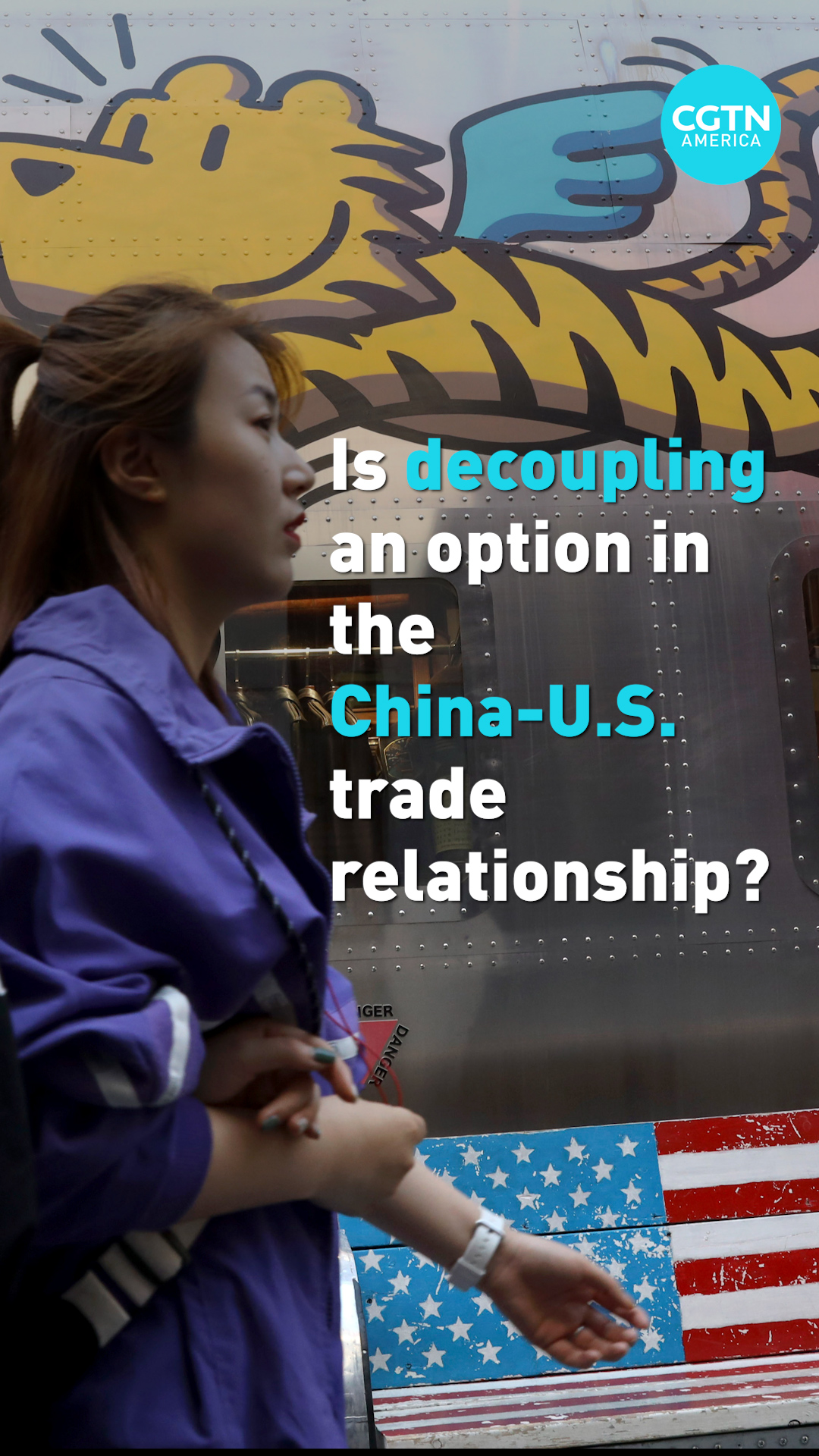Ties between China and the U.S. have frayed in the last few years, generating a lot of rhetoric around the notion of economic "decoupling." However, that was not evident in trade figures released by the U.S. Commerce Department on Tuesday, Feb. 7, showing that trade between the two world powers has hit a record high. Can the two countries pursue a decoupling strategy?
02:14

Goods traded in 2022 between China and the U.S. reached $690.6 billion, according to U.S. data.
Experts say the rhetoric in Washington does not always correspond with what's actually happening on the ground.
“Decoupling is more evident in the political statements in Washington, DC, than in the economic reality. Companies and consumers in the United States, they really care about getting products from reliable suppliers in a timely fashion and at a competitive price,” said economics professor Yan Liang of Willamette University.
Although the trade data is not adjusted for inflation, the numbers are still considered high.
The Biden administration has indicated that it hopes to build a “floor for the relationship” between the two countries.
The aim is to prevent the rivalry from spiraling into conflict.
The administration’s message was complicated by its decision to largely ban the export of semiconductor chips to China.
“I think to some degree this policy has a counterproductive effect of not being able to address the U.S.’s trade imbalance with China. Because if the U.S. restricts exports of high-tech products to China, that would mean they are reducing their own export revenues. That is not helpful for the United States to reduce its trade deficit with China,” said Liang. She added, “In addition, banning these exports of high-tech goods would also undermine the (U.S.) tech companies’ bottom line."
Former U.S. President Donald Trump in 2018 launched a trade war with China. He imposed tariffs on nearly $300 billion worth of Chinese goods, leading China to retaliate.
But where do consumers and businesses stand?
According to Liang, “From business and economic logic, the consumers and U.S. companies will continue to want to trade with China. At the political dimension, there is still a lot of barriers. Because of political pressure I don’t see the Biden administration changing its policy stance anytime soon, but the economic reality is that the two countries are deeply integrated, deeply connected and interdependent. So I think the trade relation will continue to forge ahead.”
What do you think?
For more, check out our exclusive content on CGTN Now and subscribe to our weekly newsletter, The China Report.